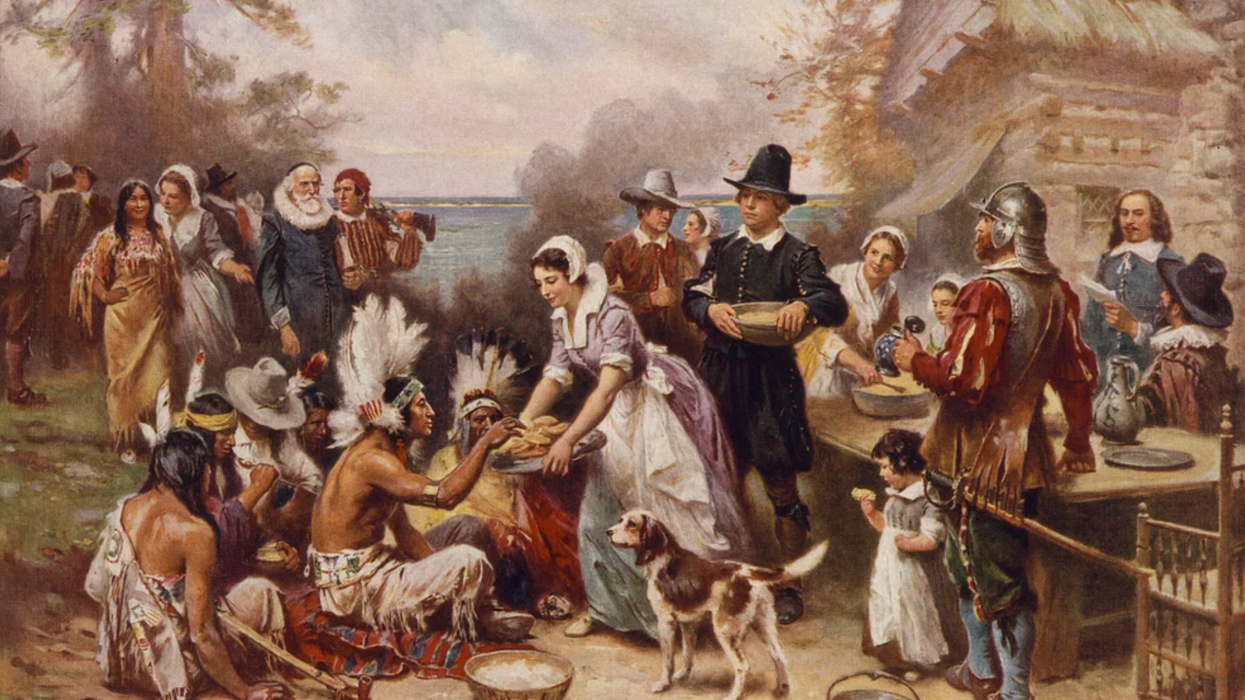'They weren’t here to Kumbaya': Maine town that hosted Thanksgiving feast before Plymouth rejects it

November 23, 2023 | 07:54AM ETBank

In 1607 — 14 years before the Plymouth Colony in Massachusetts held a harvest feast between settlers and Indigenous people — a written account by a member of the Popham Colony spoke of sharing "meat and drink" with members of the Wabanaki tribe. But the town of Phippsburg, Maine, which is on the same land as the Popham Colony, doesn't want to be associated with the Thanksgiving holiday.
NBC News reported that Kirstie Truluck, who is the executive director of the historical preservation nonprofit Maine's First Ship, is actively resisting laying claim to hosting the first Thanksgiving. Despite her role in promoting the Popham Colony's history, Truluck said Phippsburg has "no knowledge and we make no reference and no claims on Thanksgiving."
Even though an English settler in Popham wrote that a small group of the Wabanaki were "feasted and entertained with all kindness, both that day and the next" and that parting gifts of copper beads and knives were exchanged, Truluck said the real history of that gathering was actually more sinister. Two guests at that feast were abducted and enslaved, then made to act as translators to other natives. But instead of translating for the settlers, the captive natives instead warned other Indigenous people to not trust European colonists. This made trade virtually impossible, and the fort established at the Popham Colony was eventually abandoned.
POLL: Should Trump be allowed to hold office again?
"It was a colonial enterprise of commerce,” Truluck said of the Popham Colony. “They weren’t here to Kumbaya.”
Rob Stevens, a master shipwright in Phippsburg who oversaw the recreation of the original Popham ship (the first English ship built in North America) shared Truluck's views on the 1607 gathering.
"Thanksgiving carries a lot of suffering for the people who were already here," Stevens told NBC News.
Of course, Plymouth's history of hosting the first Thanksgiving is also widely misunderstood. In an interview with Smithsonian Magazine, historian David Silverman said that the Mayflower's landing at Plymouth Rock was not the Wampanoag tribe's first contact with European settlers – in fact, some had already been to Europe and back and even spoke English. Additionally, the Wampanoag tribe's offering to share its autumn harvest with settlers wasn't meant as a friendly gesture of camaraderie, but rather a strategic move by Wampanoag chief Ousamequin to forge an alliance with the English to have an advantage over the rival Narragansett tribe.
READ MORE: How Thanksgiving shaped advertising as we know it
Even as Phippsburg rejects claims to host the first Thanksgiving and towns across America are making gestures against whitewashing the brutal history of colonialism by removing statues and renaming monuments, Maine itself is still struggling with tribal sovereignty issues. In July, Maine Governor Janet Mills (D) vetoed a bill that would have given the Penobscot tribe and other tribes the full rights and benefits granted to other federally recognized Indigenous tribes due to lingering questions about its implementation. Lawmakers are expected to re-introduce the bill in the 2024 session.